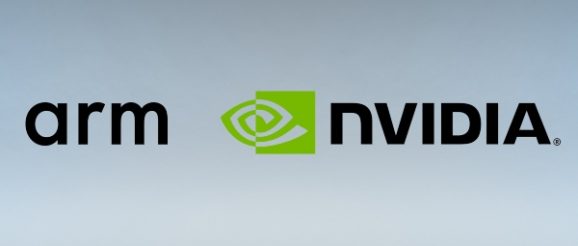UK Regulator Says Nvidia-Arm Deal Could Stifle Innovation – EE Times Asia

UK Regulator Says Nvidia-Arm Deal Could Stifle Innovation
Article By : Nitin Dahad
U.K. regulator triggers in-depth probe as customers and competitors voice concerns over future access to Arm’s intellectual property.
The U.K. competition regulator has concluded that an in-depth probe of Nvidia’s proposed acquisition of Arm is warranted due to competition concerns and the potential for stifling technology innovation.
The Competition and Markets Authority (CMA), which last month sent a summary to the government’s Department for Digital, Culture, Media and Sport, has since published its report. The report warns the proposed deal would enable Nvidia to harm competitors by restricting access to Arm’s intellectual property. While Nvidia has offered “behavioral remedies” to ensure rival access to Arm’s technology, the CMA said the proposed remedy does not alleviate its concerns.
“We’re concerned that Nvidia controlling Arm could create real problems for Nvidia’s rivals by limiting their access to key technologies, and ultimately stifling innovation across a number of important and growing markets,” said CMA Chief Andrea Coscelli. “This could end up with consumers missing out on new products, or prices going up.”
Added Coscelli, “The chip technology industry is worth billions and is vital to products that businesses and consumers rely on every day. This includes the critical data processing and data center technology that supports digital businesses across the economy, and the future development of artificial intelligence technologies that will be important to growth industries like robotics and self-driving cars.”
CMA launched its phase 1 investigation this past January, inviting public comments. The agency said it received a “substantial number of detailed and reasoned submissions” from customers and competitors raising concerns in numerous markets. Based on those comments, it concluded there are significant competitiveness concerns associated with the merged businesses’ ability and incentive to harm Nvidia’s rivals. Of particular concern is the ability to restrict access to Arm’s CPU IP while impairing interoperability among related products. The fear is those moves would benefit Nvidia’s downstream activities and increase profits at the expense of competitors.
A “foreclosure” in the supply of CPUs, interconnect products, GPUs, and SoCs across global markets, from data centers to gaming applications creates significant competition concerns, CMA warned. Reduced competition and innovation could result in more expensive or lower quality products, it said.
Customer, competitor concerns
The report splits competitiveness concerns into two categories: those specifically related to data center technologies and a second category covering automotive, gaming and IoT.
The report notes that Arm possesses market power in the supply of CPU IP for data centers and SmartNICs, or network interface controllers. Commenters noted that Arm is a key supplier of CPU IP as a result of its technical proficiency, the strength of its software ecosystem and the “open” nature of Arm’s IP-only business model. Further, Arm’s chip IP is key for data center suppliers without access to the x86 architecture used by Intel or AMD or to in-house solutions. This includes cloud service providers driving growth in the data center CPU market. Sales of Arm-based data center CPUs have grown rapidly in recent years, thereby exerting pressure on x86 data center CPU sales.
Meanwhile, the agency found significant barriers for switching to other chip IP licensors such as RISC-V or MIPS. Further, the Nvidia-Arm merger would create incentives to change Arm’s business model to favor Nvidia, the agency said, specifically noting the rapid growth of the data center CPU and SmartNIC markets.
CMA said it received a significant number of detailed comments from customers and competitors regarding the merger’s potential for restricting access to Arm IP by rival SoC suppliers for IoT, automotive and gaming applications. It concluded that a strategy of foreclosing access to chip IP for those applications would substantially reduce competition in downstream markets, including SoCs used for high-end IoT applications, advanced driver assistance systems and infotainment in automotive along with gaming consoles.
Monopoly power
Prior to release of the U.K. report, Hermann Hauser, a founder of Acorn Computers (from which Arm was spun out) asserted the proposed acquisition of Arm by Nvidia would create a U.S. monopoly.
In an interview last week, Hauser said, “Arm’s acquisition by Nvidia would be a disaster because it would create another U.S. monopoly like Google, Facebook etc, but this time in microprocessors.”
Hauser expressed similar concerns in a recent interview with EE Times Weekend in which he warned that monopolies are among the biggest economic threats, undermining fair competition.
Hauser told the Cambridge Independent he is unmoved by Nvidia’s pledge to maintain Arm’s neutrality and open business model, questioning the GPU leader’s promise to invest in an AI center in Cambridge. “We must not be bribed by the crumbs that Nvidia is willing to hand out to Cambridge to get a $40 billion deal done,” he said.
The full CMA report on the proposed merger of Nvidia and Arm is here.
This article was originally published on EE Times.
Nitin Dahad is a correspondent for EE Times, EE Times Europe and also Editor-in-Chief of embedded.com. With 35 years in the electronics industry, he’s had many different roles: from engineer to journalist, and from entrepreneur to startup mentor and government advisor. He was part of the startup team that launched 32-bit microprocessor company ARC International in the US in the late 1990s and took it public, and co-founder of The Chilli, which influenced much of the tech startup scene in the early 2000s. He’s also worked with many of the big names—including National Semiconductor, GEC Plessey Semiconductors, Dialog Semiconductor and Marconi Instruments.
